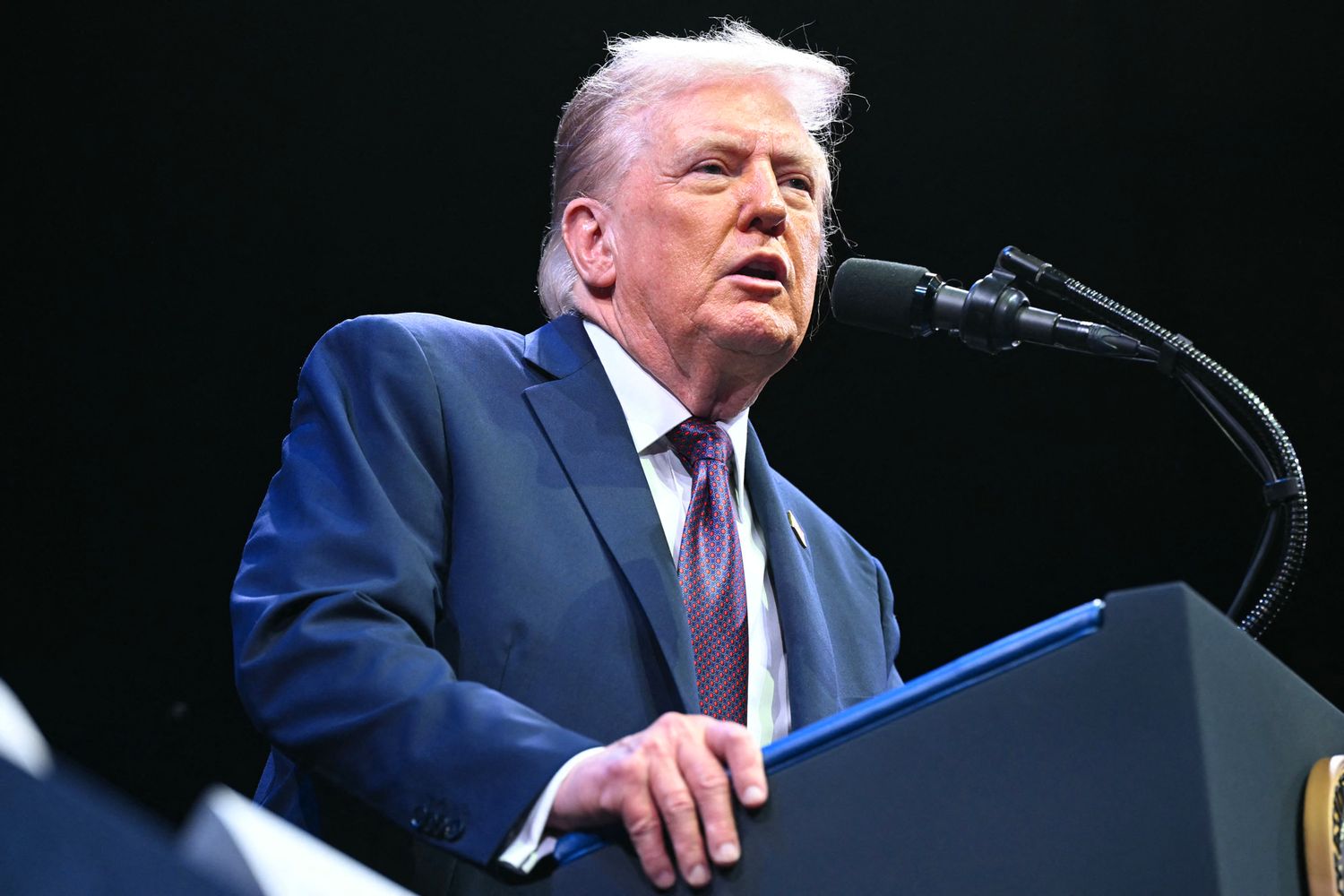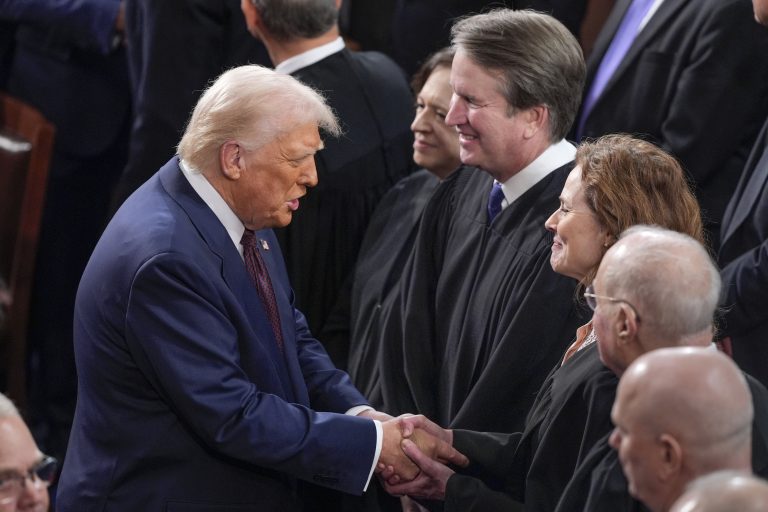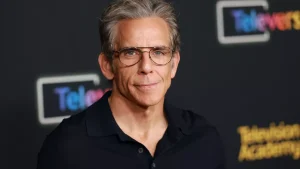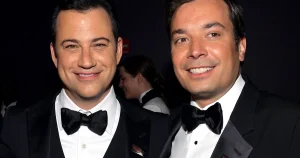US President Donald Trump has come under intense criticism following remarks he made about the tragic death of conservative activist Charlie Kirk. The comments, made during a Fox News interview, have sparked widespread outrage on social media, with many calling the president’s tone “insensitive” and even “worse than Jimmy Kimmel’s controversial monologue.”
The Tragic Event
Charlie Kirk, a prominent conservative activist and co-founder of Turning Point USA, was assassinated on September 10, 2025, while speaking at Utah Valley University in Orem, Utah. The 31-year-old was delivering the first stop of his “American Comeback Tour” when he was shot, leaving behind his wife Erika Frantzve and their two young children. The incident sent shockwaves through the conservative movement and across the country.
Authorities apprehended 22-year-old Tyler Robinson after a 33-hour manhunt. Robinson has since been charged with aggravated murder, obstruction of justice, and witness tampering. Officials have indicated that the death penalty is likely to be pursued. Investigators revealed that Robinson entered the campus with a concealed rifle and fired from a rooftop location, targeting Kirk as he addressed the audience. Following the shooting, Robinson fled, leaving behind weapons and ammunition. The assassination has prompted a wider conversation about security at public events and the rising threat of politically motivated violence.
Kirk was widely recognized as a charismatic figure in conservative politics. As co-founder of Turning Point USA, he worked to engage young voters and championed conservative causes. Despite his prominence, the attack highlighted the vulnerabilities of public figures, especially those whose views attract both passionate support and strong opposition.
Trump’s Remarks Spark Outrage
Shortly after the assassination, President Trump appeared on Fox News for an interview with anchor Martha MacCallum. During the segment, the topic of Kirk’s views on “hate speech” came up. MacCallum reminded Trump that Kirk had publicly stated, “There is no such thing as hate speech.” Trump’s response, “Yeah, he might not be saying that now,” was immediately criticized as callous and dismissive.
The clip quickly circulated on social media, with many viewers expressing disbelief at the president’s perceived lack of empathy. X user Richard Hanania reshared the video with the caption, “This is more insensitive than Kimmel,” a reference to the late-night host Jimmy Kimmel, who recently faced backlash for comments on air about the same tragedy.
Public reaction was swift and often scathing. One social media user wrote, “Putting words in a dead man’s mouth for political gains is disgusting. I’d say even more disgusting than simply not mourning his death.” Another remarked, “Wild how cracking jokes gets people suspended but the guy running for president can drop lines like this on live TV.” These reactions highlight the tension in public discourse, where political figures are scrutinized for tone and intent in moments of tragedy.
Reflecting on Past Interactions
During the interview, Trump also recounted a previous phone call with Kirk, describing the exchange in a casual, almost jovial tone. The president recalled that Kirk had called him to request his attendance at a Turning Point USA event in Phoenix. Trump, sounding amused, said, “Charlie, I’m the President of the United States, you’ve called me, asking me if I could speak tomorrow in Phoenix? You can’t do that to me, Charlie.” He continued, “But I usually ended up going. He was great. He was a great guy and he didn’t deserve this. He didn’t deserve this, believe me.”
Many commentators viewed this anecdote as further evidence of the president’s failure to fully grasp the gravity of the situation. Critics argued that framing Kirk’s death within the context of a casual phone call detracted from the tragedy and contributed to a perception of insensitivity.
Political Reactions
The president’s remarks quickly drew criticism from political leaders as well. Senate Minority Leader Chuck Schumer condemned the comments, accusing Trump of exploiting Kirk’s death for political gain. “Using the tragic death of Charlie Kirk as an excuse to supercharge the political witch hunt against critics is abhorrent,” Schumer stated.
Some commentators drew direct comparisons to the suspension of Jimmy Kimmel’s late-night show following controversial comments about Kirk. Observers highlighted the double standard, noting that while a television host faced immediate professional consequences, a sitting president could make similar remarks without official repercussions.
Conservative figures have also weighed in. Some defended Trump, emphasizing that the president’s comments were not intended to be disrespectful but rather to acknowledge Kirk’s political positions. Others argued that even within supportive circles, the timing and tone of the remarks were inappropriate, particularly given the national mourning following the assassination.
Social Media Backlash
The clip from Fox News quickly went viral, generating tens of thousands of comments and reactions. Social media users were split, with some defending the president and others expressing outrage at the perceived insensitivity. One viral tweet read, “Lmao proof that they don’t even care about the dude or his ideas—they just found a catalyst to enact their fascist agenda and move towards authoritarianism.” Another sarcastically commented, “Guy who mourned Kirk by playing golf and waxing about his White House ballroom has strong ideas about what Kirk would think if he was alive.”
The discourse extended beyond Twitter and X, with discussions appearing on Facebook, Instagram, and news forums. The incident has sparked broader debates about how public figures discuss tragedies, the ethical boundaries of political commentary, and the role of social media in shaping public perception.
Memorial Service and Tribute
Despite the controversy, plans for a memorial service for Charlie Kirk are moving forward. Scheduled for Sunday, September 21, 2025, at State Farm Stadium in Glendale, Arizona, the service is expected to attract thousands of mourners. The stadium, with a capacity of more than 60,000, will host a public ceremony honoring Kirk’s life, with speeches from political leaders and Turning Point USA representatives. President Trump has indicated he may attend and deliver remarks.
In addition to national figures, Turning Point USA has announced that Kirk’s widow, Erika, has been appointed as the organization’s new CEO and Chair. Erika Kirk, a former Miss Arizona USA and founder of a Christian streetwear fashion brand, had been increasingly involved in the organization during her marriage. The board of directors emphasized that the appointment reflects Kirk’s expressed wishes and a commitment to continue his work. In her first public statement since the tragedy, Erika vowed to carry forward her husband’s legacy and expand Turning Point USA’s influence.
Broader Implications
The assassination of Charlie Kirk has raised significant questions about the safety of public figures, the polarization of political discourse, and the responsibilities of leaders in addressing tragedies. Many observers have noted that politically motivated violence is on the rise, and public figures must navigate the tension between expressing political viewpoints and maintaining a tone of respect for victims and their families.
Trump’s comments, while intended to highlight Kirk’s political beliefs and personal character, have reignited debates over what constitutes acceptable commentary in moments of national mourning. Critics argue that any attempt to inject humor or casual anecdotes into a discussion of a violent death can appear callous, regardless of intent.
The situation has also prompted reflection on the media’s role in shaping public perception. Fox News, by airing the segment and emphasizing Kirk’s statements on hate speech, has become a focal point in discussions about responsible reporting and the framing of sensitive topics.
Conclusion
Charlie Kirk’s assassination marks a tragic and defining moment in contemporary American politics. As his family, friends, and supporters mourn, the nation continues to grapple with the implications of political violence and the responsibilities of leaders to communicate with sensitivity.
President Trump’s remarks, widely criticized as insensitive, serve as a stark reminder of the fine line public figures walk when discussing tragedy. The debate surrounding his comments highlights broader tensions in political discourse, social media culture, and public expectations of leadership.
As the memorial service approaches and Erika Kirk assumes leadership of Turning Point USA, attention remains focused on honoring Charlie Kirk’s contributions while fostering dialogue about civility, responsibility, and the impact of words in times of grief. The tragedy has left an indelible mark on the conservative movement and the nation at large, ensuring that the conversations it has sparked will continue to shape political discourse for months, if not years, to come.

James Jenkins is a celebrated Pulitzer Prize-winning author whose work has reshaped the way readers think about social justice and human rights in America. Raised in Atlanta, Georgia, James grew up in a community that instilled in him both resilience and a strong sense of responsibility toward others. After studying political science and creative writing at Howard University, he worked as a journalist covering civil rights issues before dedicating himself fully to fiction. His novels are known for their sharp, empathetic portraits of marginalized communities and for weaving personal stories with broader political realities. Jenkins’s breakout novel, Shadows of Freedom, won national acclaim for its unflinching look at systemic inequality, while his more recent works explore themes of identity, resilience, and the fight for dignity in the face of oppression. Beyond his novels, James is an active public speaker, lecturing at universities and participating in nonprofit initiatives that support literacy and community empowerment. He believes that storytelling is a way to preserve history and inspire change. When not writing, James enjoys jazz music, mentoring young writers, and traveling with his family to explore cultures and stories around the world.









